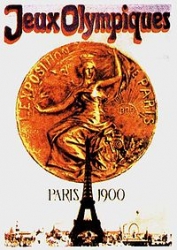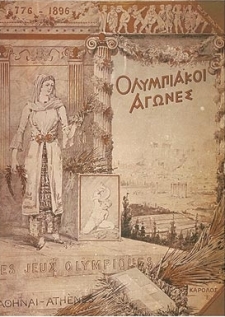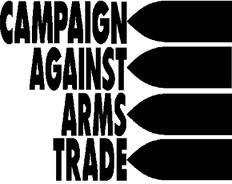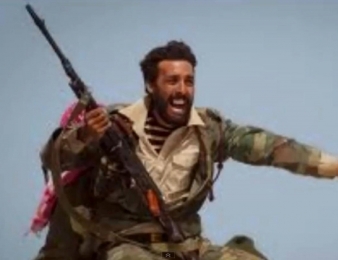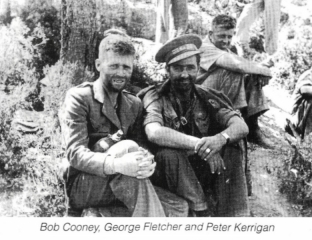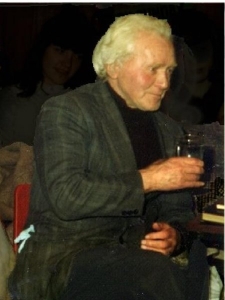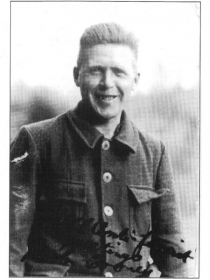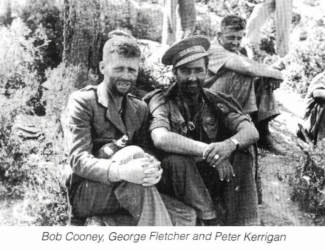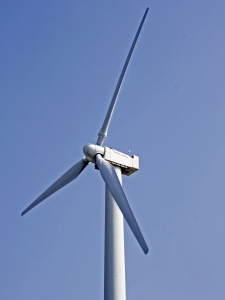Voice’s Old Susannah takes a look over the past week’s events in the ‘Deen and beyond. By Suzanne Kelly.

Another exciting week passes in Aberdeen; our very own Prime Minister Cameron came up for a nice wee chat, something about independence or other.
I haven’t been able to find much about this topic on the net, but if anything turns up, I’ll keep you posted.
A very huge thanks to a very kind stranger who lent me £5 for bus fare (a long story). Your cheque should be with you, nice to know there are a few kind people still out there.
In my ongoing quest for vegetarian food, I’ve been eating at Café 52 a bit (yes, I know the owners), and am getting used to eating lots of quorn stuff as well. To each his own, but I’m glad I’m doing this. I’m also off to the gym at the Thistle Altens, where there are few fashion victims, and lots of nice people.
I’m still trying to get good at running, something Ben Hukins inspired me to do. I achieved a personal best last week, and didn’t fall off the treadmill while watching the Winter Olympics. As far as I can tell, some people with red and blue flags have faster individuals than some other people with yellow or green flags. And of course, Pussy Riot got playfully teased (i.e. hit) by Cossacks. Good times.
Necessity forced me into a Morrisons recently for some cat food; I don’t usually shop there after an event some years ago. I saw one of their staff members walking around in their street shoes in one of the chiller areas, using the food storage area, filled with food, as a kind of step ladder.
‘How inventive’ I thought at the time, but wondered whether it was the most hygienic way to treat the chilled food I was going to bring home. Somehow the idea of someone walking around the streets of Aberdeen and then walking around on the food (even though packaged, I’d still have to touch it) I was going to prepare didn’t thrill me.

I complained at the time, but was assured nothing like what I’d seen had actually happened. Fair enough. Old Susannah isn’t getting any younger, and you can’t argue with Morrisons, so I forgot about it.
Still, here is a little photo take from my recent visit to a Morrisons, of me imagining something that doesn’t happen in their stores.
You might wonder if there is some kind of guidelines or even laws about how food should be hygienically treated. Well, there are.
The thing is, whether it comes to food, childcare, animal welfare, or journalism, what laws and rules are actually enforced might on occasion be a subjective thing. You can’t expect important, busy and rich people to have to follow rules, and the same holds true of elected officials, governments, and of course private companies.
Here are a few relevant definitions to guide you through the legal minefield.
Ignorantia juris non excusat (Ignorance of the Law is no Excuse): (Latin phrase) – in law, not knowing a practice or act was illegal is not considered grounds for innocence. Or is it?
Applies to: you and me
Probably doesn’t apply to: Rebekah Brooks
Aside from a few bereaved parents, politicians and celebrities whose lives have been blighted, there is one standout victim of the ongoing Old Bailey trial into hacking, and that is poor Mrs Rebekah Brooks, former editor of News of the World, and husband-beater.
According to the BBC:
“Mrs Brooks said she “didn’t think anybody, me included, knew it was illegal”.
“She told the Old Bailey she felt “shock and horror” after she discovered murdered schoolgirl Milly Dowler’s phone had been hacked…. She said she was never asked to sanction the accessing of voicemails for a story during her time as editor of the newspaper.”
“’No journalist ever came to me and said ‘We’re working on so and so a story but we need to access their voicemail and we need to ask for my sanction to do it’, she said.”
“Even though I didn’t know it was illegal, I absolutely felt it was in the category of a serious breach of privacy’.”
That’s fair enough; I mean how could anyone have known or suspected it would be illegal to secretly spy on people? It’s not as if there is some kind of skill level you’d need to get the top job on such an illustrious, responsible, value-orientated newspaper. There’s not really time to get your nails done as well as to get up to speed on publishing laws.
Of course, her shock and horror at learning Milly Dowler’s phone was hacked was translated into direct action; it is impressive how she called those involved to account and dealt with them. By doing virtually nothing.
Brooks was a very busy woman, as Private Eye once reported, sometimes so busy she needed two or more hairdressers to attend to her curly red locks at work, much in the same way she needed her husband and a bit on the side in the form of Andy Coulson.
You might have expected Coulson’s high standard of ethics to rub off on Rebekah at some point, but alas, they didn’t. Coulson brought some of his other skills to bear in his role as David Cameron’s spin doctor. More on the sad demise of these media demi-gods can be found here: http://www.dailymail.co.uk/news/article-2480886/Rebekah-Brooks-Andy-Coulson-6-year-affair-phone-hacking-trial-hears.html.
If only there were some way Brooks could have known there was a law against hacking into private telephone conversations and messages. If only News International had say a legal department. I hear that such things exist.Of course Brooks could always turn to the police if she needed advice on what was legal and what wasn’t – the police were indeed in touch with the newspaper’s staff. Then again, the police were probably too busy selling secrets about the Royal Family to News International to dispense any legal advice.
There is also an obscure website – she couldn’t have known about it – which gives advice to professional editors and news professionals; it is called The Press Complaints Commission, and my sources say that News International may have had one or two dealings with them over the years. The code dates from 1991 and has recently been updated, though I can’t imagine why. Details can be found here, should you ever find yourself wondering if you should be writing stories based on information taken from the phones of missing children.
But it is the violation of family privacy that is most upsetting in this sorry tale. In times of trauma and crisis, you don’t want your secrets splashed out in lurid detail in the papers. If only the rest of the press had been as respectful of people as the News of the World had, then a lot of unnecessary shame and embarrassment could have been avoided.
Mrs Brooks is getting the best advice in the world.
When it emerged that Charlie Brooks, Rebekah’s husband, was found carrying some porno around with him, we all realised that the press needed to be reined in. Poor Charlie!
Of course, Old Susannah is just a little confused as to how, if you didn’t think something was illegal, you tried to hide the evidence of doing it by getting rid of black bin liners full of evidence. Anyone who can give me an explanation of that one is welcome to weigh in.
On a final note, rest your minds – Mrs Brooks is getting the best advice in the world. None other than Tony Blair, our former PM, and apparent co-author of the famous ‘dodgy dossier’ which led to our little foray into Iraq, is on the case. He’s kindly offered to advise Rupert Murdoch and Brooks.
How should Rebekah cope? ‘Tough up’, take sleeping pills, and go to the gym says Blair (who may or may not have been having a fling with Rupert’s then wife, Wendy Deng. It must be rather difficult at the office Christmas party for some of these couples). Now we know how he sleeps at night, which had proved something of a mystery.
Old Fashioned Discipline: (English phrase) – to ensure good behaviour by threatening, intimidating, injuring, terrorising.
Applies to: you and me
Doesn’t apply to: tough guys who think they’re doing the right thing, the armed forces.
Children need to know their place and who’s boss. Start them out right – like sending them to the Hamilton school, where as babies they will be taught how to be bored and ignored. Crying infants were left to their own devices as part of the school’s discipline ethics, according to recent reports. That’ll learn ‘em. And then we have those belligerent teens, who need some extra special discipline.
So their basic dignity and human rights may get a bit dented in the process, but discipline comes first. If you can’t find some highlands police to take them to a farm and terrorise them then you can always engage the child-rearing and fitness specialist, Norman McConnachie.
This poor man is in court accused of just doing what he thought was right – helping kids get off to a good start in life. He is accused of just doing the right thing by using a mix of a little ridicule, sexual abuse, torture and fear – all of which can go a long way to getting someone to be a useful member of society.
The Aberdeen high court has heard how in his own words he was just using ‘a little old-fashioned discipline’ and sees nothing wrong with calling teens fat and lazy. He’s no doubt doing the right thing by trying to make a 17 year old girl into a man.
I’m sure he’s the action-man hero he claims he is, but what’s this? A Facebook page called ‘Walter Mitty Hunters’ questions whether this ‘be all you can be’ guy can be all he says he is. For that matter, a few people have been in touch to share very curious observations about his behaviour. We’ll see if the courts uphold this macho fitness instructor, or if they’ll believe some fat, lazy teenage girls.
Intellectual Property: (Eng. legal compound noun) The right of the creator of a piece of work, art, music, film over the use of their work.
Applies to: you and me
Doesn’t apply to: SHMU (see related articles in Aberdeen Voice Public Image? Unauthorised Photos Published By SHMU), Aberdeen City Council (which used artwork on line without permission on at least one occasion).
Wildlife protection laws / Wildlife & Countryside Act 1981: (Modern English ) – laws set to protect wildlife from poaching, cruelty, trade
Applies to: virtually no one
Another day, another rare bird of prey is killed in the highlands (http://raptorpersecutionscotland.wordpress.com/2014/02/27/wildlife-protection-laws-have-had-little-impact-on-driven-grouse-moors/ ). Poisoned bait, illegal, cruel traps, shooting, it’s all the rage. After all, these birds eat other animals, and we can’t have that.
Thankfully, there are laws protecting our wildlife. Pity no one seems to have told the police these laws are to be enforced. Likewise, no one seems to have troubled the judicial system with any need for penalising the few people who do get caught.
I am proud to say that in Aberdeen, the police are as on the case as you would expect. When the severed limbs of deer were discovered on Tullos Hill (and on Kincorth hill by a city warden – but that doesn’t somehow count), the police sprang into action. They decided not to go to the press. They decided not to trouble the Scottish SPCA – there were no suspicious circumstances apparently – just the usual collection of butchered body parts.
They swiftly ensured no signs were posted to warn poachers their actions were illegal. They swiftly, well after a month, answered some of my questions about animal crimes. I can now – as a world exclusive – reveal that the police cannot confirm or deny that dogfighting is taking place in Aberdeen. Remember, you heard this bold, brave police statement here first.
What about all the incidents we know of from the press and Facebook of people attempting to steal dogs and cats?
They are busy behind the scenes, cracking the criminal rings
What about the person who got in touch with me to say they gave the police a description of someone who tried to make off with their dog and that the police dissuaded them from taking the matter further. Well, Police Scotland has come forward to say that there was one reported case in 2013 of an animal theft.
You could start to wonder whether there is a conspiracy of silence. Do the police and our local government want to keep unsavoury crime under wraps so as not to upset potential incoming businesses and residents? Are we keen to deny evidence, such as the nearly starved dog found last year in the north of the city which showed signs of dogfighting abuse?
Are the authorities keeping info back from the Scottish SPCA when they failed to pass on the dismembered deer details? Of course not. They are busy behind the scenes, cracking the criminal rings involved in organised animal crime, and those behind bird of prey poisonings. If we got too much info, that would clearly tip the gangs off, and they might cut their activities down. Since we’ve had such a successful police response to our tiny local car crime problem, let’s just leave them to it on animal issues as well.
So, the next time you forget you’ve let your tax disc expire or the next time you park in the wrong place at the wrong time, just tell the authorities you didn’t realise you were doing wrong. It seems to work for everyone else.
And now, time for a BrewDog.
Next Week: More legal definitions , courtesy of Trump, the University of Florida, Atos, and the government’s plans to sell your NHS files to private companies. Sleep well.
- Comments enabled – see comments box below. Note, all comments will be moderated.
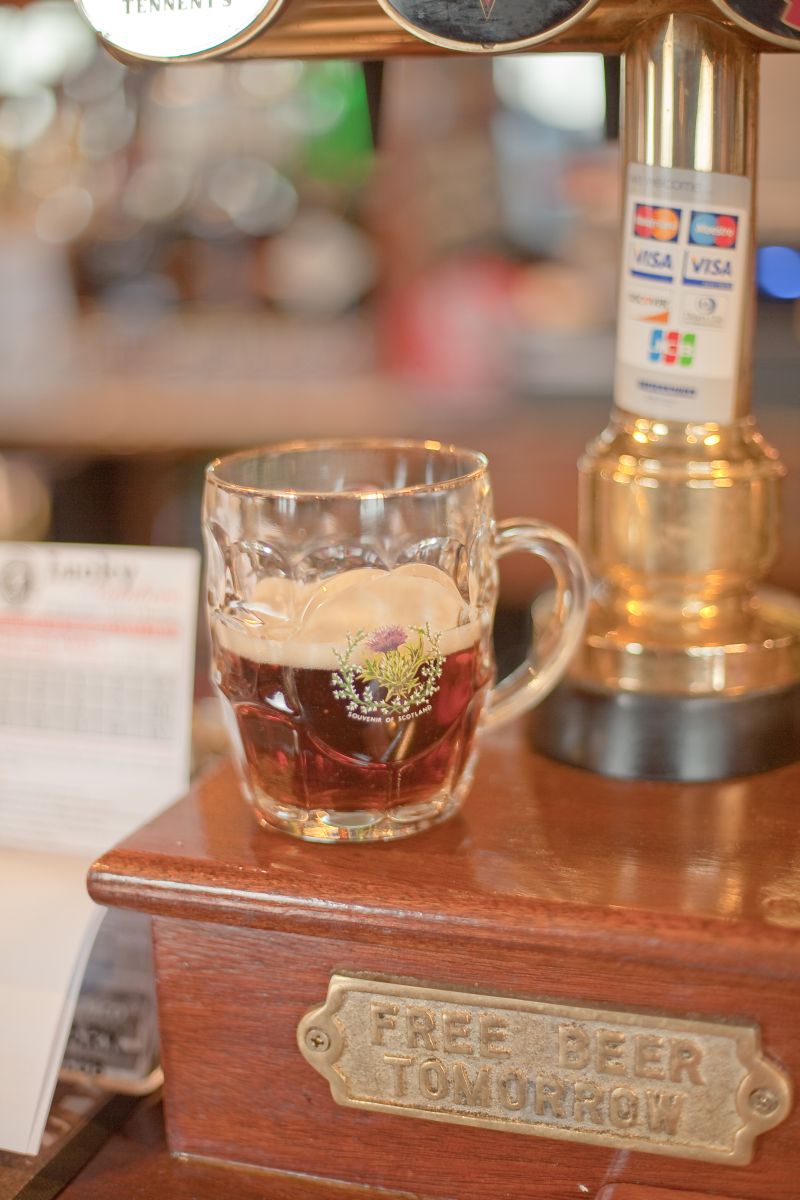 It’s been quite a while since Grumpy Jack made the digital front-page. In fact, I am struggling to decide whether number-nine is the correct nomenclature for this edition of the musings.
It’s been quite a while since Grumpy Jack made the digital front-page. In fact, I am struggling to decide whether number-nine is the correct nomenclature for this edition of the musings.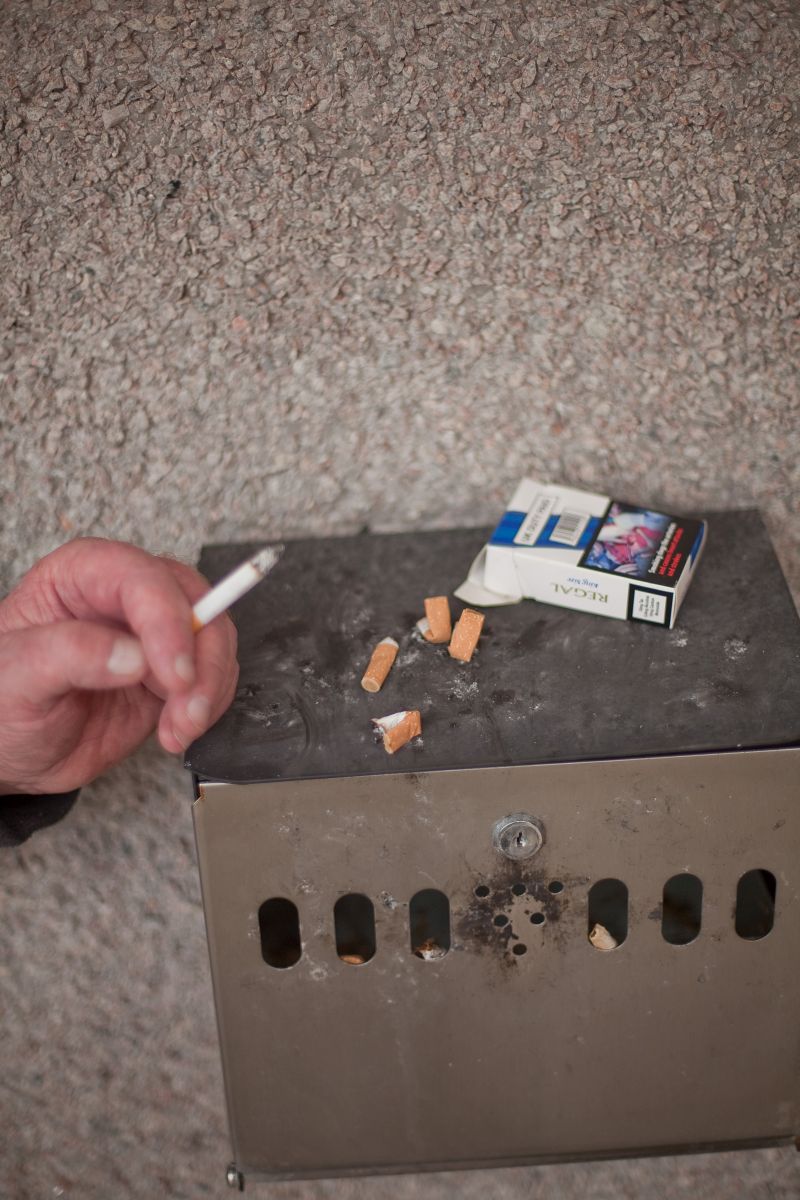 After Scottish Secretary Robert Munro described the riot as a Bolshevist uprising troops armed with machine guns, tanks and even a howitzer arrived to occupy Glasgow’s streets.
After Scottish Secretary Robert Munro described the riot as a Bolshevist uprising troops armed with machine guns, tanks and even a howitzer arrived to occupy Glasgow’s streets.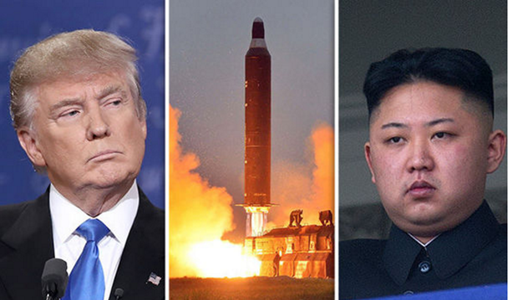 The cycle of threat and counter-threat is creating an appalling situation in which warfare between nuclear states is being discussed as a serious option on both sides.
The cycle of threat and counter-threat is creating an appalling situation in which warfare between nuclear states is being discussed as a serious option on both sides.

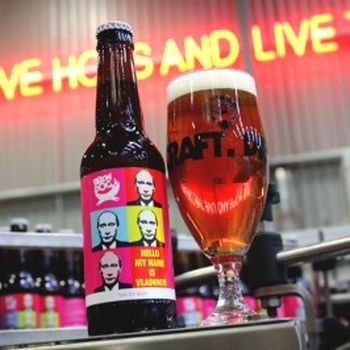
 “We sincerely hope that when Vladimir Putin is tired from a busy day riding horses with his top off, grappling with burly men on the Judo mat or fishing in his Speedos, he reclines on a velvet chaise longue and has one of his handsome helpers wet his whistle with a glass of Hello My Name is Vladimir.”
“We sincerely hope that when Vladimir Putin is tired from a busy day riding horses with his top off, grappling with burly men on the Judo mat or fishing in his Speedos, he reclines on a velvet chaise longue and has one of his handsome helpers wet his whistle with a glass of Hello My Name is Vladimir.”